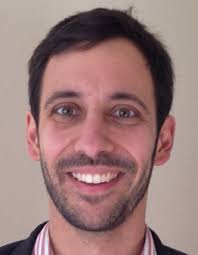Speaker: Dr. Oliver Suendermann
Title: Intrusive memories of trauma are often neutral (in their content) but distressing (in their re-experiencing) – An analogue study of associative learning in the development of intrusions
Date: Friday 9 September, 1-2 pm
Venue: AS4/02-08 (Psychology Department Meeting Room)
Abstract:
Background: Trauma survivors with posttraumatic stress disorder (PTSD) often re-experience parts of their traumatic experience. Information processing theories suggest that perceptual processing and associative learning during trauma predict the content of re-experiencing symptoms and their triggers.
Method: In two experimental studies (N=56, N=84), healthy volunteers watched neutral and trauma picture stories on a computer screen. Neutral objects unrelated to story content appeared in the interval between the pictures. Self-report measures assessed emotional and cognitive processing during stories. Intrusive memories were assessed by interview at 1 and 2-week follow-up. Physiological responses (Heart rate, skin conductance) to trauma stories and neutral objects were assessed.
Results: Both studies found that healthy participants developed intrusive memories of neutral stimuli that were temporally but not meaningfully associated with analogue trauma. Perceptual processing and anxiety increases during trauma stories predicted intrusive memories. Heart rate deceleration towards neutral objects predicted intrusive images from the trauma picture story.
Conclusion: Findings provide some support for the role of perceptual processing and associative learning during trauma in re-experiencing. Results may have treatment implications.
About the Speaker:
Oliver is a Clinical Psychologist and has recently joined NUS as new manager of the Clinical and Health Psychology Centre (CHPC). He completed his PhD and Doctorate in Clinical Psychology at the Institute of Psychiatry at King’s College London. Oliver previously conducted research in Posttraumatic Stress Disorder, and his current research interests focus on obsessive-compulsive and body image problems.


